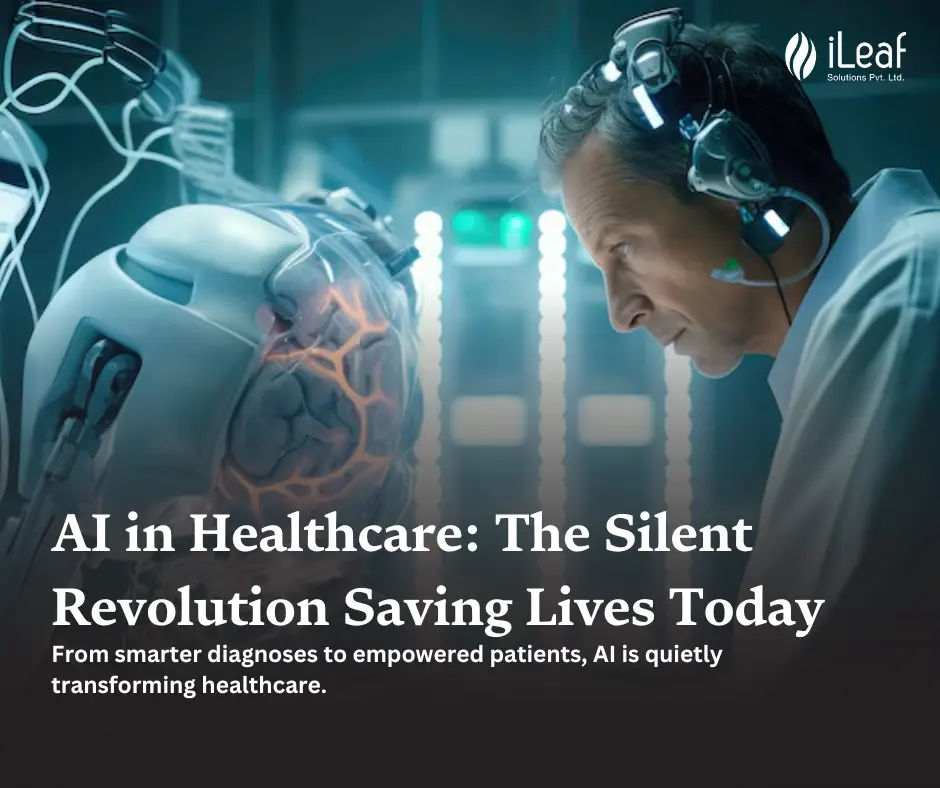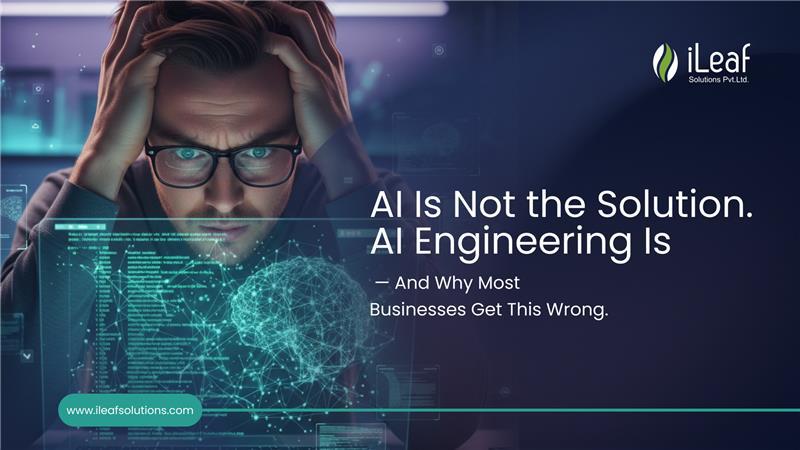The Silent Savior: How AI is Quietly Saving Lives in Hospitals Today

Overview
- Introduction
- AI Applications in Healthcare Analytics
- Advancements in Research, Drug Development, and Disease Prevention
- The Future of Healthcare: Beyond the Band-Aid
Introduction
The world of healthcare is undergoing a quiet revolution. While headlines often focus on groundbreaking surgeries or life-saving medications, a silent force is transforming hospitals from the inside out: Artificial Intelligence (AI). AI in healthcare analytics silently saves lives by putting together an immense amount of data created within hospitals to improve diagnosis, personalize treatments, empower patients, and even innovate surgery.
Every interaction, every scan, and every test in a hospital creates data. Without effective analysis, these volumes of data remain largely untapped. Artificial intelligence, by processing large data sets and spotting hidden patterns, opens up the real power of information.
AI Applications in Healthcare Analytics
1. AI in Diagnostics: One of the most crucial applications of AI is in medical imaging analysis. AI algorithms trained on vast libraries of medical scans (X-rays, MRIs, CT scans) can now detect abnormalities with incredible accuracy. This not only improves the speed and efficiency of diagnoses, but also allows for earlier detection of diseases like cancer, leading to significantly better patient outcomes.
For instance, AI-equipped systems apply in the analysis of mammograms with a greater degree of accuracy than human radiologists, hence their ability to allow early detection of breast cancer. On another front, AI also finds use in the analysis of brain scans, helping diagnose neurology-related conditions like Alzheimer's and Parkinson's diseases with more precision.
2. Enabling Personalized Treatments through AI: AI does much more than mere diagnostics. It can analyze the medical history, genes, and other relevant data pertaining to a patient to suggest treatment plans that are personalized in nature; it is even capable of forecasting risks. It brings an age of "precision medicine" where treatments are tailored into the very unique needs of individuals for more effective outcomes and reduced side effects.
For example, AI algorithms are being developed to predict a patient's response to various cancer therapies by analyzing the pathology of tumor profiles. But other than that, AI can also look up genetic makeup to determine potential interactions among drugs or tell what kind of diseases are more prone to occurring in a person.
3. Empowering Patients with AI-driven Monitoring Devices: The healthcare ecosystem isn't just about hospitals. AI wearables or sensors imbue the concept of care like never before outside clinical premises. These devices can continuously monitor entrants' vital signs, heart rhythms, and activity levels. The data collected is identified and analyzed in real-time through AI-enabled algorithms. This data is read by AI algorithms to confirm and diagnose signs of impending health concerns and alert the patient or health professional when necessary.
For example, AI-based smartwatches continuously measure a person's heart rate and rhythm, which enables them to realize the possibility of arrhythmias before they increase in severity. Similarly, AI-infused smart meters for glucose level control can analyze blood sugar trends to recommend adjusting medication or dietary habits for patients with diabetes. It helps patients to be more proactive toward their health and allows for early intervention in case of any anomaly.
4. Revolutionizing Surgery with Robotics and AI: Next, AI is sea-changing in the operating room domain. Improved accuracy in surgery and reduced possible complications are provided by the robotic surgery system, aided by algorithms of Artificial Intelligence. AI can take up the analysis of real-time data during surgery and assist surgeons in making critical decisions that ensure better patient outcomes.
For example, AI-powered robot arms conduct minimally invasive procedures with incredible preciseness, making the recovery period of the patients short and causing less pain. AI can also guide surgeons to go through very complicated anatomical structures and thus lead to lesser risks during surgery.
Advancements in Research, Drug Development, and Disease Prevention
More than the immediate benefits to patient care, AI is going to really accelerate progress in medical research, drug development, and prevention of disease. AI, therefore, would be able to look through the heaps of medical data to find trends and patterns that otherwise may elude human researchers. This would imply the possibility of discovering new biomarkers for diseases, identifying more targeted and powerful drugs, and even forecasting a probable outbreak of diseases.
For example, AI is used to analyze next-generation sequencing data from large patient populations for the identification of potential targets for new cancer therapies. In addition, using AI in data obtained from public health records and social media would help in predicting the spread of infectious diseases and therefore will be able to prevent it at an earlier stage.
The Future of Healthcare: Beyond the Band-Aid
This is a technology that is going to turn health care upside down, shifting it from being reactive to being proactive. Imagine having virtual doctors who can be available any time during the day and night, AI chatbots which could give you tailored mental health advice, and robotic surgeons who can do procedure after procedure with a precision way beyond human limits. This isn't science fiction; it's a new horizon.
AI diagnostics will go beyond scans; voice, gait, and even social media activity will be analyzed to feel out future health issues. AI virtual assistants will become mainstream, handling appointments and making basic consultations. For mental health, AI chatbots will be there to offer support confidentially and link the individual to therapists where necessary.
It won't be limited to diagnosis and treatment alone; AI analyzes huge data sets to predict individual health risks and risks associated with populations, allowing preventive measures and early intervention.
Definitely, the future of AI in healthcare is not about technology, but how it will make possible a much more proactive, personalized, and accessible system for all.














